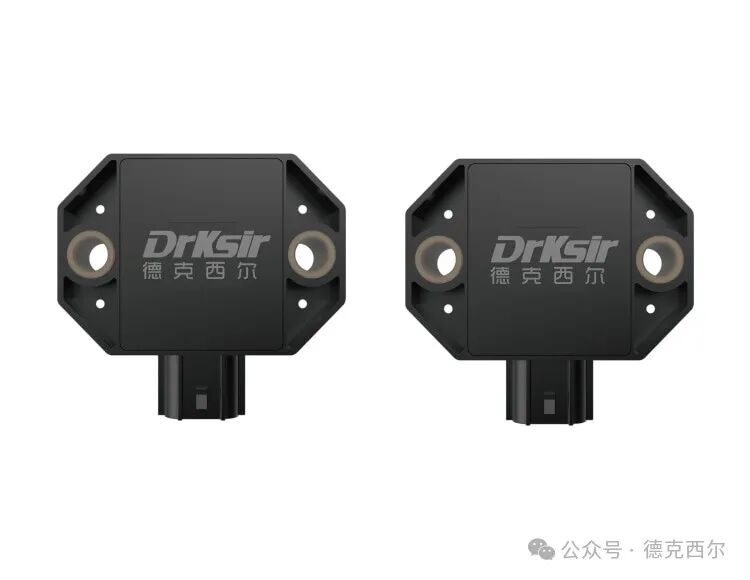The application of hydrogen sensors in fuel cells is very important, primarily used to monitor the concentration and purity of hydrogen to ensure the safe and efficient operation of the fuel cell system. Below is a detailed introduction to the application of hydrogen sensors in fuel cells:

1. Hydrogen Leak Detection
• Function: Hydrogen is a flammable and explosive gas, and leaks can lead to serious safety hazards. Hydrogen sensors are used to detect leaks of hydrogen in the system.
• Key Points:
• Install sensors around the hydrogen storage tanks, pipelines, or reactors in the fuel cell system to monitor hydrogen leaks in real-time.
• If a hydrogen leak is detected, the sensor will trigger an alarm system or automatically shut off the hydrogen supply to prevent dangerous situations.
2. Monitoring Hydrogen Operating Status
• Function: The operating status of the fuel cell system directly depends on the supply and reaction efficiency of hydrogen. Hydrogen sensors can help provide real-time feedback on the concentration and pressure of hydrogen in the system, thereby optimizing system operation.
• Key Points:
• Monitor the concentration of hydrogen in the reactor to ensure the appropriate ratio of hydrogen to oxygen to support efficient electrochemical reactions.
• Adjust the hydrogen supply based on sensor data to avoid excess or insufficient amounts, thereby improving the energy conversion efficiency of the system.
3. Monitoring Hydrogen Storage and Transportation
• Function: Fuel cell systems typically require support for hydrogen storage and transportation, and hydrogen sensors play an important role in this process.
• Key Points:
• Monitor the concentration and pressure of hydrogen in storage tanks or transport pipelines to ensure the safety of hydrogen storage and transportation.
• During hydrogen storage, sensors can also detect hydrogen leaks to prevent hydrogen loss and potential safety risks.
4. Types of Hydrogen Sensors
• Common types of hydrogen sensors include:
• Electrochemical sensors: Generate electrical signals through the chemical reaction of hydrogen with electrodes to detect hydrogen concentration.
• Catalytic combustion sensors: Detect hydrogen concentration by measuring the heat changes produced during hydrogen combustion.
• Infrared sensors: Detect hydrogen concentration based on hydrogen’s absorption characteristics of specific infrared light.
• Quantum conductivity sensors: Detect hydrogen concentration by changing conductivity through the reaction of hydrogen with nanomaterials.
• Each type of sensor has its advantages and disadvantages, and selection should be based on the specific needs of the fuel cell (such as sensitivity, response time, cost, etc.).
5. Importance of Hydrogen Sensors
• Safety: Hydrogen is a flammable and explosive gas; sensors can timely detect leaks to prevent explosions or fires.
• Efficiency: By monitoring hydrogen concentration and pressure in real-time, sensors can help the fuel cell system operate at optimal conditions, improving energy conversion efficiency.
• Reliability: The data from sensors provide a basis for the control and protection of the fuel cell system, ensuring long-term stable operation.
6. Application Scenarios
• Fuel Cell Vehicles: Used to monitor the hydrogen storage system and hydrogen supply of the fuel cell stack.
• Fuel Cell Power Generation Systems: In large fuel cell power plants, sensors are used to monitor the storage, transportation, and reaction processes of hydrogen.
• Industrial Fuel Cells: In industrial applications, sensors are used to monitor the supply and reaction status of hydrogen to ensure efficient system operation.
7. Technical Advantages
• High Sensitivity: Capable of detecting extremely low concentrations of hydrogen, ensuring the accuracy of safety monitoring.
• Fast Response: Sensors need to respond quickly to changes in hydrogen concentration to handle emergencies.
• Anti-Interference Capability: In complex industrial environments, sensors must resist interference from other gases or environmental factors.
• Long-Term Stability: Fuel cell systems typically require long-term operation, and sensors need to have good stability and durability.
Conclusion
Hydrogen sensors are not only key devices for ensuring the safe operation of fuel cell systems but also core technologies for improving the efficiency and reliability of fuel cells. If you are interested in the hydrogen sensor products from Drksir, you can further follow their official website or contact the technical support team for detailed information!